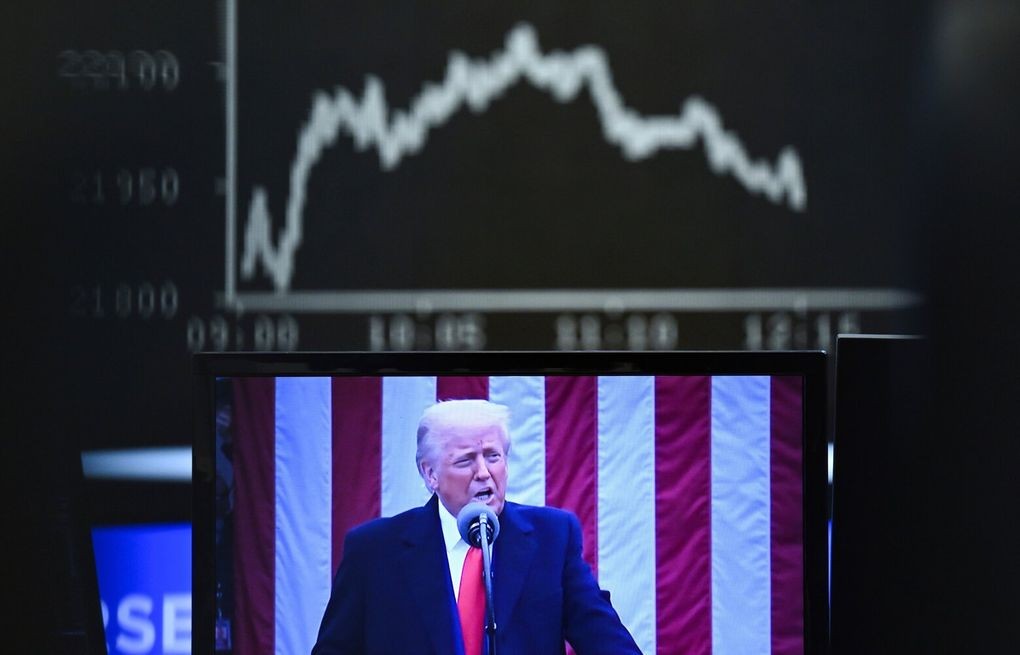
U.S. stock markets plunged dramatically following President Trump's announcement of extensive new import tariffs affecting most of America's trading partners. The S&P 500 fell 4.84%, marking its worst trading day in five years, while the tech-heavy Nasdaq dropped nearly 6% and the Dow Jones Industrial Average plummeted over 1,600 points.
The sweeping tariffs, set to begin this weekend, will impose a minimum 10% tax on nearly all imports to the United States. Several key allies face even steeper rates - European Union goods will see 20% tariffs, while Japanese imports will be taxed at 24%. China faces a massive 34% tariff on top of existing 20% duties, while Vietnamese goods will be hit with a 46% tax rate.
Companies heavily dependent on imports saw their stocks hammered. Nike shares dropped 14%, while tech giants Apple and Amazon each lost 9% of their market value. The Russell 2000 index tracking smaller public companies fell over 6%, entering bear market territory with losses exceeding 20% since November.
"This is a game changer, not only for the U.S. economy but for the global economy," said Olu Sonola of Fitch Ratings. "You can throw most forecasts out the door, if this tariff rate stays on for an extended period of time."
Trump framed the move as necessary to boost domestic manufacturing and reduce trade deficits. "We're going to produce the cars and ships, chips, airplanes, minerals and medicines that we need right here in America," he stated at the White House.
However, economists warn the tariffs will likely trigger higher consumer prices and slower economic growth in the U.S. while pushing trading partners toward recession. Many compare the scope of these tariffs to the Smoot-Hawley duties of the 1930s that worsened the Great Depression.
Former Treasury Secretary Larry Summers criticized the policy: "It was bad for consumers, because it meant higher prices. It was bad for producers, because it meant higher input costs. And it was bad for peace, because it undermined comity among nations."
Trading partners have already promised retaliatory tariffs on U.S. exports, threatening American manufacturers who rely on global markets. The dramatic market response signals deep concern about potential long-term damage to both the U.S. and global economies from this major shift in trade policy.